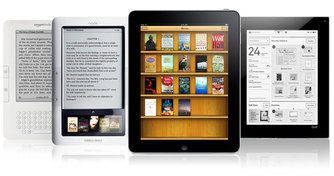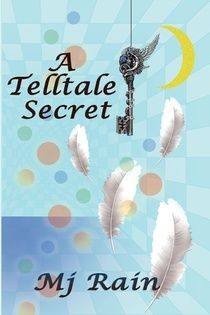
The most important question is always why. When it comes to Kindles (and e-readers in general), most answers an owner will give you fall under the category of progress. This is a lie.

In any case, practicality isn’t always pleasant. If it was, all of our furniture and personal belongings would come from IKEA and when you spotted a T-Shirt you liked in H&M you’d buy twenty of them and swear off shopping for a decade. The fact is, e-readers aren’t the most pleasant thing to use.
Everyone hates reading on a computer, so the makers of these things have done their utmost to simulate the book experience and have managed to make it very easy on the eyes and even interesting to look at. It is, however, still a simulation. The interesting part is novelty value. Holding a book in your hands is far more fun: it’s a tactile experience as well as a visual and cognitive one.
This is the same argument applied by us old-timey purists when it comes to music. Downloading an album will never be the same as having the CD in a jewel case, an LP in a sleeve or even a tape in a box with cover art and a booklet of lyrics, photography and doodles. These are all part of the same package, as it was intended to be enjoyed. The same is true of books.
Downloaded books, like downloaded albums, also have no decorative value. This isn’t a superficial issue. What kind of music fan or bookworm doesn’t want a library of records or a beautiful book collection along the walls of their house? That’s just one of the many reasons we buy them.
Yes, e-books might be more economical (see IKEA and multiple t-shirts), but there’s a reason for that. They’re not the whole package. Paying for the whole thing is worth it (the digitized cover art on your Kindle screen doesn’t count). Most of us have spent too much money on books or CDs and don’t regret it, because we still have them. Building up a collection is a good thing.

What it really comes down to is one of two things: fake progress or unnecessary progress. Only time will tell which. Remember mini-discs? Dead. Fake progress. Zip discs? VCDs? Laser discs? Same again. Unnecessary progress often comes with an i at the beginning: iPhones, iPads, iPod Touches, etc. This is coming from a happy Apple user – there’s nothing wrong with these things, it’s just that no one actually needs them. They’re practical, but they’re also about novelty value.
Count how many of your friends have found some life-savingly efficient use for their smart phone and how many of them play an arcade game every time they go one stop on the subway.
This isn't product innovation. Given time, even newspapers will make a comeback over their internet counterparts. Novelty value gets old and wears off, and these things are going to look silly. As Stephen Fry put it, Kindles are as much a threat to books as lifts are to stairs.
Pros: cheaper, compact, practical. You could read a hundred books a week if you wanted to and never have a heavy bag. Makes people excited about the future.
Cons: Unnecessary, soulless, reusable but single-purpose.
Conclusion: It’s a matter of taste. Good and bad, but taste all the same.





 RSS Feed
RSS Feed
